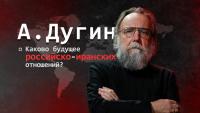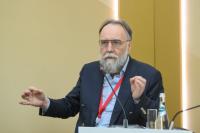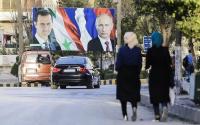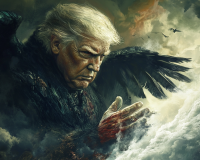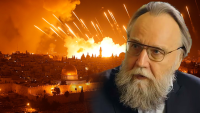Nick Land dan Alexander Dugin tentang Liberalisme, Kekaisaran, dan Eschaton Tentang Dasein, desentralisasi, dan kembalinya modernitas secara gaib
Ini adalah transkrip Auron MacIntyre yang menjadi tuan rumah bagi Nick Land dan Alexander Dugin dalam dialog luas tentang akar Anglo liberalisme dan "paleoliberalisme," "KTT Kosong" (desentralisasi) versus overcoding republik, kekaisaran dan politik sakral, Dasein jamak dan temporalitas, eskatologi, dan apakah teknologi/AI modern dan tuduhan "Setanisme" baru-baru ini menandakan kembalinya agama daripada sekadar penyimpangan sekuler.



